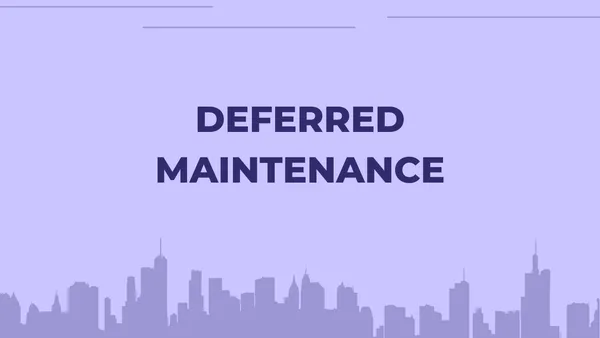
Taking a sharp look at the future of estate management firms in the UK
Estate management in the UK has its roots in the feudal system, where land ownership and management were pivotal to wealth and power.
Traditionally, estate management involved overseeing vast rural estates, agricultural lands, and heritage properties, focusing on maintaining land productivity and supporting local communities.
Their role was deeply personal, balancing economic stewardship with the livelihoods of those tied to the land.
Fast forward to the 20th century, and urbanization shifted estate management’s focus from rural lands to bustling cities. It evolved into managing residential, commercial, and mixed-use developments, integrating financial oversight, tenant relations, and legal responsibilities.
What was once a hands-on role morphed into a more process-driven, system-oriented discipline.
Today, estate management is in the midst of another transformation. Firms are no longer simply caretakers of properties; they’re being asked to create value, drive sustainability, and provide connected, tech-enabled spaces.
This evolution is forcing the industry to rethink its purpose, blending its rich legacy with modern demands for efficiency, compliance, and tenant experience.
Why the estate management market is resetting
The UK property market, worth £1.2 trillion, is bursting with potential. But while 87% of businesses say they want connected systems and better efficiency, too many estate management firms are stuck using spreadsheets and outdated tools.
The result? A growing gap between what’s needed and what’s delivered.
Here’s where things are going wrong:
- Fragmented Systems: Many firms are juggling tech that doesn’t talk to each other. Instead of overseeing strategy, managers are drowning in operational chaos.
- Net-Zero Mandates: Meeting sustainability goals isn’t optional anymore. Regulations are demanding it, and tenants are expecting it.
- Too Much Data, Too Few Insights: There’s no shortage of data, but without the right tools, it’s just noise. Missed opportunities to cut costs and boost efficiency happen every day.
The clock is ticking. Firms that tackle these challenges head-on will lead the way. The rest will get left behind.
Why traditional approaches no longer work
For decades, estate management has relied on methods that worked for simpler times. But today’s landscape—defined by smart technologies, evolving regulations, and demanding tenants—has exposed the cracks in these approaches. Here’s what’s holding firms back:
- Reactive maintenance done wrong: Reactive maintenance is often labeled as inefficient, but it’s not inherently the problem. The issue lies in how it’s managed. Without the right tools and processes, repairs become delayed, communication with tenants breaks down, and costs spiral out of control. For estate management firms, the challenge is to approach reactive maintenance with service excellence—ensuring quick responses, tenant transparency, and streamlined workflows.
- Fragmented operations: A typical estate management team juggles multiple tools for tasks like lease management, compliance tracking, and maintenance scheduling. When systems don’t communicate, decision-making becomes a guessing game. For example, a property manager has zero insight into how delayed maintenance impacts occupancy rates or energy costs because the data lives in silos.
- Manual workflows: Relying on spreadsheets and outdated software for tasks like invoicing or compliance audits slows everything down. It’s not just a time issue; these workflows introduce errors. Missed deadlines for fire safety checks or energy certifications can lead to fines, legal complications, and reputational damage.
- Regulatory complexity: UK regulations, such as the Building Safety Act and minimum energy efficiency standards (MEES), are non-negotiable. Real estate teams need a clear baseline for what must be inspected, how often, and what evidence needs to be maintained—our UK statutory compliance guide lays out the essentials.
Traditional methods often fail to keep up with their demands. The fines start at As per a notification from LEEDS, fines start at £5,000 fine per breach, per property.
The penalty applies per property, per breach of Regulation. If after being fined up to £5,000, a landlord proceeds to unlawfully let a sub-standard property on a new tenancy, the authority may again levy a financial penalty in relation to that tenancy.
A cost no firm can absorb repeatedly. These inefficiencies trickle down into outcomes that matter most to estate management firms—tenant retention, cost control, and reputation.
For a business built on delivering consistent value, failing at any of these is a serious risk.
British Land’s model for change
British Land offers a compelling blueprint for what’s possible when estate management embraces transformation. Partnering with Facilio, they reduced energy consumption by 50% year-on-year, demonstrating the power of a connected, data-driven approach:
- Integrated oversight: By adopting a unified property operations platform, British Land streamlined workflows across diverse assets.
- Predictive analytics: Real-time data-powered proactive maintenance, minimizing downtime and tenant disruptions.
- Sustainability as strategy: Their commitment to ESG compliance turned sustainability from a regulatory burden into a competitive edge.
British Land’s success underscores that the tools and strategies for transformation are already here. It’s a matter of execution and vision.
Why change feels hard (But doesn’t have to be)
Change is scary, especially when it comes with a price tag and complexity. Some common reasons to refrain we know of are:
- “What’s the ROI?” It’s a fair question. But too many firms stall here, forgetting that long-term gains often outshine short-term costs.
- “It’s too complicated.” Interoperability challenges are real, but the alternative is piecemeal solutions that frustrate tenants and bleed resources.
- “Too many choices.” Facility managers report “choice paralysis” from the avalanche of tech options, but starting small can unlock quick wins.
Every one of these barriers is also an opportunity.
Cost concerns? Prove the ROI with energy savings. Complexity? Find a platform that connects the dots. Overwhelmed? Focus on incremental improvements.
Smart leadership turns obstacles into competitive advantages.
We put together a change management strategy guide (based on hundreds of interactions with clients and our implementation team) that explains how combining the right technology with a change management mindset can streamline and future-proof facility operations.
Questions estate management firms should be asking themselves today
Estate management firms must confront difficult yet vital questions to shape their future:
- How do we move from managing assets to creating value for tenants and communities?
- Are tenant experiences truly prioritized, or are they a checkbox in quarterly reviews?
- What will distinguish today’s leaders from tomorrow’s laggards?
The future of estate management isn’t waiting politely for anyone to catch up. It’s hurtling forward, driven by unyielding forces—climate imperatives, tenant expectations, and technological evolution.
Concluding notes
The era of passive stewardship is over. Firms must now embrace their roles as proactive designers of spaces that inspire, sustain, and endure.
British Land’s approach is proof that transformation is not just possible, but essential. Their success wasn’t born of incremental tweaks; it came from rethinking how properties are managed, optimized, and aligned with the needs of today and tomorrow.
The success of innovators like British Land proves the rewards of transformation. Centralized platforms, sustainability-focused strategies, and data-driven decisions aren’t just tools—they’re the foundation for long-term growth.
The time to act is now. The question is, who will step up?
More from Facilio














